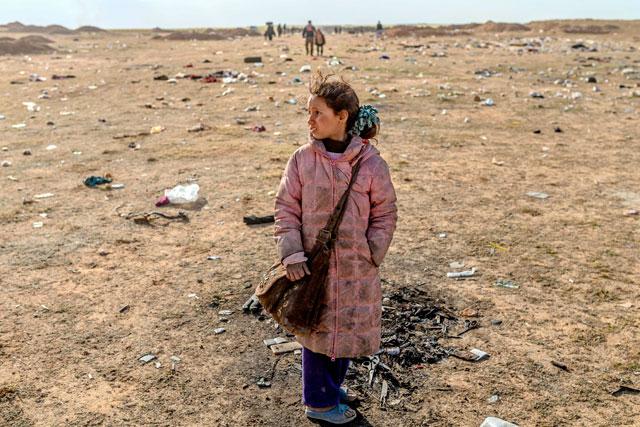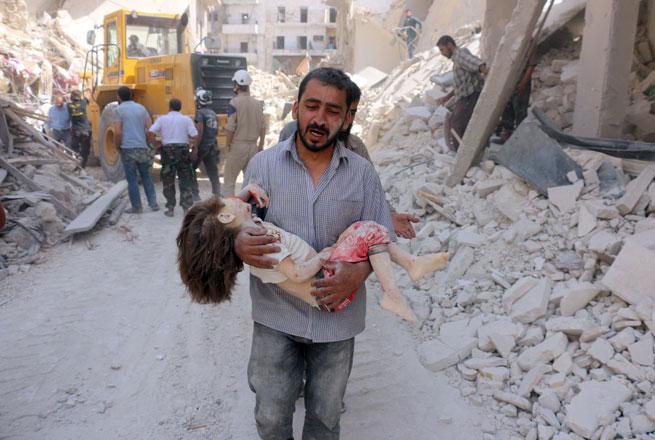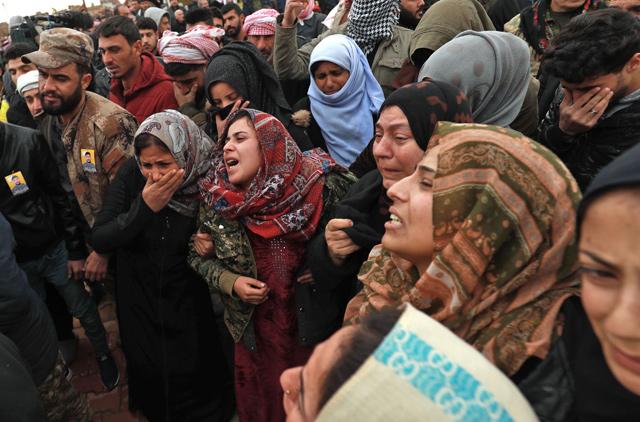You are here
Suicide attack on Kurdish-US convoy 'kills 5'
By AFP - Jan 21,2019 - Last updated at Jan 21,2019

A military vehicle is on fire at the scene of a suicide car bomb attack on a military convoy on a road in Syria's northeastern Hasakeh province, which killed five members of a Kurdish-led force accompanying US-led coalition troops, on Monday (AFP photo)
BEIRUT — A suicide bomber attacked a convoy of US troops and their allies in Syria on Monday, killing five members of a Kurdish-led force fighting the Daesh group, a monitor said.
The assault, claimed by Daesh extremists, came less than a week after another deadly attack on US forces in Syria, and a month after Washington announced a US troop pullout from the war-torn country.
The Syrian Observatory for Human Rights, a Britain-based monitoring group, said five fighters from the US-backed Syrian Democratic Forces (SDF) were killed in the blast on a road in northeastern Hasakeh province.
"A suicide attacker driving a bomb-laden car targeted a convoy of American forces accompanied by the SDF on the Hasakeh-Shadadi road," said the observatory, which relies on a network of sources inside Syria.
Shadadi lies to the south of Hasakeh, capital of the eponymous province, which has been relatively spared by the war that erupted in Syria nearly eight years ago.
The coalition confirmed the attack by a vehicle-borne improvised explosive device (VBIED), but said there were no US casualties.
"A combined US and Syrian partner force convoy was involved in an apparent VBIED attack today in Syria," coalition spokesman Sean Ryan said on Twitter.
"There were no US casualties."
Observatory head Rami Abdel Rahman said the attacker had ploughed into an SDF vehicle.
Grey smoke
Footage on Kurdish media showed a plume of grey smoke rising from a road flanked by dry land.
A witness told AFP the blast happened by a checkpoint held by Kurdish forces a dozen kilometres outside Shadadi as the convoy drove past.
The witness said he heard planes fly overhead, before the area was completely cordoned off by Kurdish fighters.
The Kurdish security forces known as Asayesh said the attack hit 10 metres from a checkpoint outside Shadadi, but unlike the observatory it said no one had died.
“A bomb-laden car driven by a terrorist tried to target a coalition convoy as it passed by, lightly wounding a female member of the Asayesh,” the statement said, reporting no other injuries.
The reason for the conflicting casualty tolls was not immediately clear.
The Daesh group’s propaganda channel Amaq claimed the attack.
The car bombing came less than a week after another attack, also claimed by Daesh, on the US-led force and its local partners in the strategic city of Manbij.
Four Americans — two members of the military, a Pentagon civilian and a contractor — were killed in a suicide bombing targeting a restaurant in the city centre on January 16.
That attack cost Washington its worst combat losses since it deployed in the war-torn country to combat Daesh militants, who established a self-proclaimed “caliphate” across swathes of Iraq and Syria in 2014.
Ten civilians and five SDF fighters were also killed in the Manbij attack.
The US Department of Defence had previously reported only two American personnel killed in combat in Syria, in separate incidents.
‘Provocation’
This month’s attacks targeting the US-led coalition and its allies follow US President Donald Trump’s shock December announcement that he had ordered a complete troop pullout from Syria, as Daesh had been “largely defeated”.
Trump and other senior US officials have since sent mixed messages about the pace and scope of the withdrawal.
On Sunday, a former envoy to the US-led coalition said the United States had no plan for Syria after the pullout.
Brett McGurk, who quit in protest after Trump’s pullout announcement, told an interview with CBS “there’s no plan for what’s coming next” and this is increasing the risk to US forces.
Turkey has repeatedly urged Washington to make way for its own military plans in northern Syria, where the beleaguered Kurds are increasingly turning to the regime and its Russian sponsor for support.
In a phone call with Trump on Sunday, Turkey’s President Recep Tayyip Erdogan said Ankara was ready to take over ensuring the security of Manbij.
He said last week’s deadly attack was a “provocation” aiming to impact the decision to withdraw US troops from Syria, where a civil war has killed more than 360,000 people since 2011.
The SDF is fighting to expel Daesh militants from the remaining shreds of their “caliphate” in eastern Syria near the Iraqi border, but the jihadists have continued to claim attacks nationwide and abroad.
Related Articles
BEIRUT — A suicide car bomb targeting US forces in northern Syria wounded at least two allied fighters on Saturday, a monitor said, with Dae
BEIRUT — The Daesh terror group launched a surprise assault Monday near its besieged stronghold in northern Syria, killing residents of two
BEIRUT — At least 20 Daesh group extremists were killed Saturday in Iraqi air raids on their embattled enclave in eastern Syria, a war monit


















